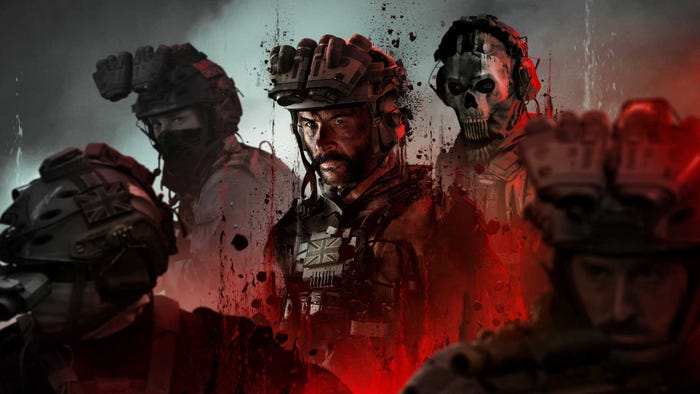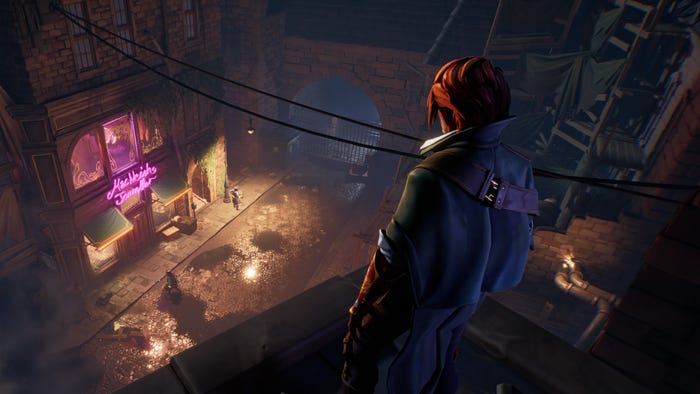Business executives have become increasingly intrusive into game design over the last generation. Ideally for everyone this should stop and even reverse course.

Today's big, triple A games are almost all tightly controlled by various business executives. Executives with business degrees are the men that set the tone, the projects goals, the business model, almost everything about the game.
The decisions left to those actually making the games themselves have become fewer and fewer as edicts are lent down from on high in the interest of business, first, second, last, and everywhere in between.
In short, the dream of many game creators, that of making their own vision, is almost gone from the high budget space. Those toiling away under their auspices do so as at least as much out of the desire to have a steady salary as any dreams they may once have held of being in charge themselves.
Is it any wonder then that there has been a huge shift towards independent games, towards games that can be put out on iOS and other such platforms, that can be produced by one person or handful? *
* http://www.gamesindustry.biz/articles/2013-02-28-gdc-sees-devs-shifting-away-from-consoles
No, it shouldn't be a surprise. But a more important question should be, is this really the way for those big companies with the big purse strings to make the most money? To hand down edicts to those actually responsible for the games, rather than letting those people be in charge of what the game should be?
We can take the evidence of John Riccitiello, a man who invites comparisons to Disney's Michael Eisner. A man and an executive team that feel confident, despite continuous quarterly disappointments and Riccitiello being named one of the "top CEO's to fire in 2013", in handing out blanket edicts to all games in the company. Such as standardizing in app purchases for all games going forward*.
* http://www.gamasutra.com/view/news/187421/EA_details_microtransactionfilled_future.php#.US_xJ5A0WSo
Or we could take the story of Activision, as literal a case of strangling the golden goose as has ever existed with the firing of Call of Duty creators Jason West and Vince Zampella, only to see Call of Duty shift into a steady decline* while they lose face and several lawsuits.
* http://www.gamasutra.com/view/news/183066/Numbers_show_The_Call_of_Duty_decline_looks_real.php#.US_yKpA0WSo
Other such examples are numerous and varied. From groans over "Yet more Killzone" during the PS4 reveal, to edicts to continue the Assassin's Creed series yearly, a series that may well go into a decline much like Call of Duty after the previous two titles have been a relative fan dissappointment on average.
And yet what is the solution for all this, to put those with knowledge of game design back in charge of actually designing games? This seems like the "obvious" thing to do, but upon inspection it's not so easy. Take the examples of Diablo 3 and Starcraft 2, games purportedly designed without much corporate interference, and while commercially successful the response from customers doesn't match the expectations of either game, probably dampening the expectations of continued commercial success for both.
Yet those are the high end of the question, still successful commercially, even wildly so. There's a very low end of expectation for putting "creators" in charge as well. Once highly respected, game designer Warren Spector's post Deux Ex career was (with all due respect) a story of failure both critically and commercially. Numerous other examples, from from Chris Taylor to American McGee follow a similar vein.
Further, games, especially big games, are often a highly collaborative process. As Spector himself pointed out, he was not a single person particularly responsible for Deus Ex, but it was instead the team as a whole that made the game what it was. There is something to be said for trying to follow a particularly successful proccess, that may produce a reliably good result. But even there we can see failure. Of particular note is not only Blizzard's recent games not livin up to fan expectations (even if they hit commercial ones), but that of Pixar. A movie studio that has followed its process for years and into two decades now. But of late has consistently missed their previous mark of quality despite their process not changing.
And so there is indeed something to be said of the singular creative person at the center. Examples of success may point to Peter Molyneux, who while having many ups and downs as well as a notoriously big mouth, has also been the creator of many extremely successful games over the course of decades; from Populous, to the Fable series, to Curiosity (admittedly not commercially successful, primarily as 22 Cans elected not to have any monetization). Others include Hideo Kojima and his continuously successful Metal Gear series, Shigeru Miyamoto and such series as Mario, Zelda, and others, Cliff Bleszinski and the highly successful Gears of War series, as well as many others.
If something is to change, if video game executives are to take their ideal place in the background, dealing with the business end of things and deciding wha does and does not get funded, then something is going to have to change. There's going to need to be a way to identify how to make a successful game, and what makes a successful team.
There's going to need to be a way to identify the successful video game designer from the one that happens to be present when success happens. Executives, understandably, want at least a statistical average of high returns. And for them to step back, loosen the purse strings, and let teams and designers be in charge again there's going to need to be a way to deliver that.
Read more about:
BlogsAbout the Author(s)
You May Also Like








